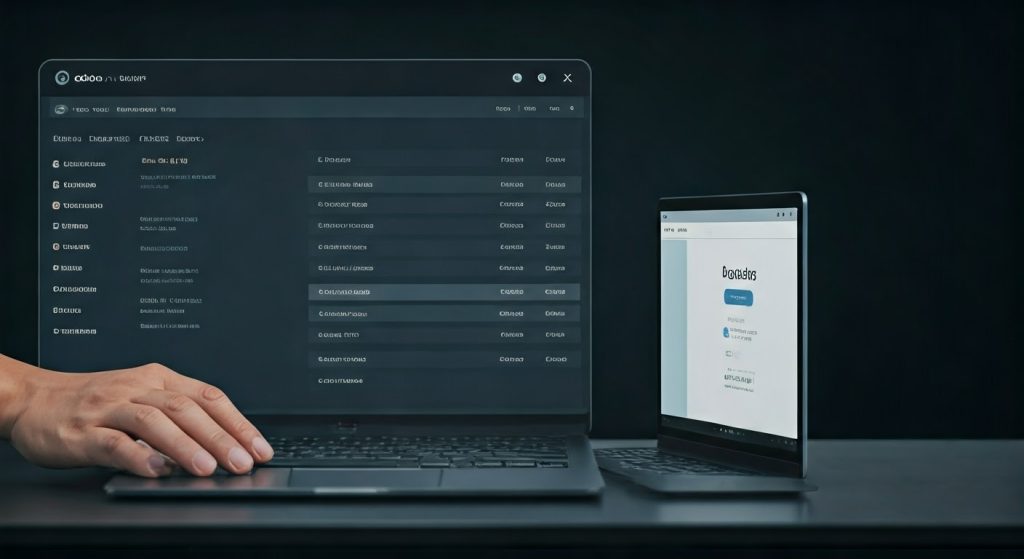Introduction
In 2025, Zimbabwean businesses are increasingly adopting Enterprise Resource Planning (ERP) solutions to streamline operations, enhance efficiency, and remain competitive in a rapidly evolving market. Among the leading ERP platforms gaining popularity is Odoo ERP, a versatile, modular, and open-source system designed to integrate all core business functions into a single platform.
This article provides a comprehensive overview of Odoo ERP in Zimbabwe, exploring its features, advantages, implementation strategies, local support, and future trends. Whether you are a small business or a large enterprise, understanding Odoo’s capabilities can help you make informed decisions about digital transformation.
What is Odoo ERP?
Odoo ERP is an all-in-one business management software that covers a wide range of functions including accounting, sales, inventory, manufacturing, human resources, customer relationship management (CRM), and e-commerce. Its modular design allows companies to start with essential applications and add more as their needs grow.
The platform is cloud-native but also supports on-premise deployment, offering flexibility to Zimbabwean businesses with varying infrastructure capabilities. Odoo’s open-source nature fosters a strong global community and continuous innovation, making it a cost-effective and scalable ERP solution.
Key Features of Odoo ERP for Zimbabwean Businesses
1. Modular and Customizable
Odoo’s modular architecture enables businesses to select and customize modules relevant to their operations. Common modules used in Zimbabwe include:
- Accounting & Finance: Compliant with local tax laws, supports multi-currency transactions.
- Inventory & Warehouse Management: Real-time stock tracking and automated replenishment.
- Sales & CRM: Manage customer relationships and sales pipelines seamlessly.
- Manufacturing: Production planning, work orders, and quality control.
- Human Resources: Payroll, leave management, and employee records.
- E-commerce: Integrated online sales platform.
2. User-Friendly Interface
Odoo’s intuitive design requires minimal technical expertise, making it accessible to SMEs and large enterprises alike. The platform offers dashboards and real-time analytics that provide clear insights into business performance.
3. Cloud and Mobile Access
With cloud deployment, Zimbabwean businesses can access Odoo from anywhere, facilitating remote work and multi-location management. Mobile-friendly apps enable staff to perform tasks on the go, enhancing productivity.
4. Local Compliance and Reporting
Odoo partners in Zimbabwe customize the platform to align with ZIMRA tax regulations, NSSA contributions, and other statutory requirements. Automated tax calculations and reporting reduce compliance risks.
5. Integration Capabilities
Odoo integrates smoothly with existing systems such as banking platforms, payment gateways, and third-party logistics providers, enabling end-to-end process automation.
Benefits of Implementing Odoo ERP in Zimbabwe
- Increased Operational Efficiency: Automates repetitive tasks and centralizes data, reducing errors and delays.
- Enhanced Business Transparency: Real-time data visibility improves decision-making and resource allocation.
- Cost Savings: Open-source foundation lowers licensing costs; modular approach avoids paying for unused features.
- Scalability: Easily adapts to growing business needs without requiring a complete system overhaul.
- Improved Customer Experience: Integrated CRM and sales modules enhance customer engagement and retention.
- Support for Digital Transformation: Facilitates adoption of emerging technologies like AI, IoT, and predictive analytics.
Implementing Odoo ERP in Zimbabwe: Best Practices
Define Clear Objectives
Identify what your business aims to achieve with Odoo ERP-whether it’s improving inventory control, automating accounting, or enhancing customer management.
Assess Business Processes
Map existing workflows and pinpoint inefficiencies. Engage stakeholders across departments to gather requirements and ensure buy-in.
Choose Relevant Modules
Start with core modules that address immediate needs. As your business evolves, add specialized applications such as manufacturing or e-commerce.
Data Migration and Integration
Cleanse and organize existing data before migration. Work with experienced Odoo partners in Zimbabwe to ensure seamless integration with legacy systems.
Training and Change Management
Provide comprehensive training to users and communicate the benefits of ERP adoption to minimize resistance.
Testing and Go-Live
Conduct thorough testing to identify and resolve issues before full deployment. Monitor system performance closely post-launch.
Challenges and Solutions in Odoo ERP Adoption
- Customization Complexity: Tailoring Odoo to specific business needs can be challenging. Partnering with certified local consultants ensures effective customization.
- Data Privacy and Security: Implement robust security protocols and comply with data protection regulations to safeguard sensitive information.
- Integration with Legacy Systems: Use advanced APIs and middleware to facilitate smooth data exchange.
- User Adoption: Continuous training and support help users adapt to the new system.
Local Odoo Partners and Support in Zimbabwe
Zimbabwe boasts a growing network of certified Odoo partners such as Showline Solutions and M&J Consultants. These firms provide end-to-end services including:
- Needs assessment
- Customization and development
- Implementation and data migration
- Training and user support
- Ongoing maintenance and upgrades
Local expertise ensures that Odoo ERP is tailored to Zimbabwe’s unique business environment and regulatory landscape.
Future Trends: The Evolution of Odoo ERP in Zimbabwe
AI and Machine Learning
Odoo is integrating AI-powered tools for predictive analytics, demand forecasting, and process automation, helping Zimbabwean businesses make smarter decisions.
Mobile-First ERP
Increasing mobile adoption drives Odoo’s focus on mobile-friendly interfaces, enabling remote teams and field workers to access critical data anytime.
Cloud Expansion
Cloud ERP adoption continues to rise, offering Zimbabwean companies scalability, cost savings, and business continuity.
Blockchain and IoT Integration
Emerging technologies like blockchain enhance transaction security and transparency, while IoT devices enable real-time monitoring of manufacturing equipment and supply chains.
Conclusion
Odoo ERP is rapidly becoming a preferred choice for Zimbabwean businesses seeking a flexible, scalable, and cost-effective ERP solution. Its modular design, local compliance capabilities, cloud accessibility, and strong partner network make it well-suited for the diverse needs of Zimbabwe’s SMEs and larger enterprises.




